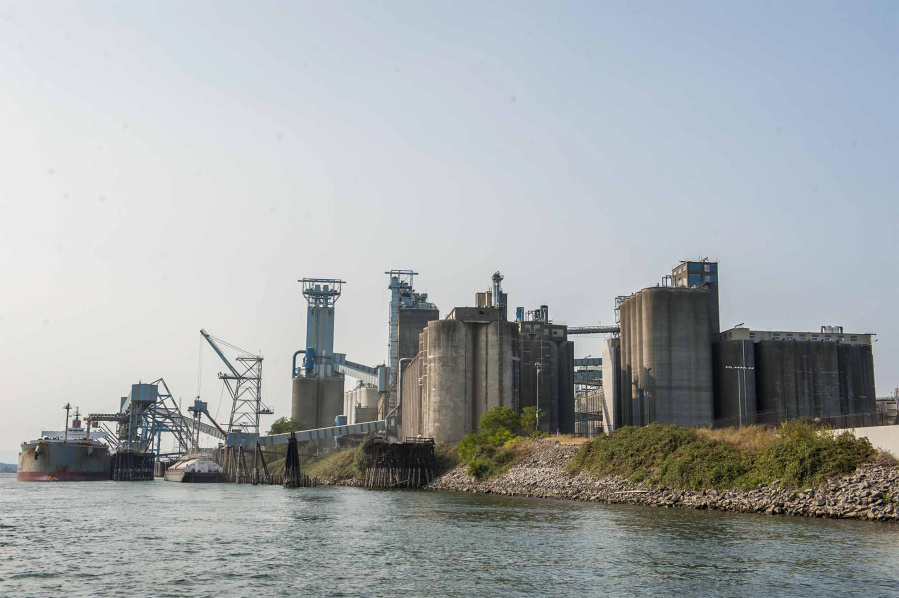The Port of Vancouver has enjoyed several years of record-setting commodity movements with international customers, but new tariffs between the United States and other nations are threatening that local prosperity.
Vancouver’s is primarily an export-driven port. In 2017, 84 percent of the 7.5 million metric tons of materials it handled were exported, with only 16 percent imported. Unlike the ports of Seattle or Tacoma, it doesn’t handle cargo containers. Instead, it moves primarily raw materials such as agricultural products, minerals and liquids.
Despite small declines in overall export volumes, the port had a fourth consecutive record-setting year thanks to strong steel and dry-bulk commodities imports.
But it’s not certain if the port will see a fifth year of record-setting volumes. In fact, port officials are more concerned about sustaining what they already have.
According to 2017 data, at least $318 million worth of goods imported at the Port of Vancouver are or could be subject to tariffs.
The U.S. Chamber of Commerce said nearly 1 million Washington jobs are supported by trade, and more than $6.7 billion in state exports are threatened by new tariffs.
“This is really going to be a pretty interesting time as we move into soybean harvest to see what happens with that market,” said Port of Vancouver Chief Commercial Officer Alex Strogen.
Brazil and the U.S. are the world’s main soy producers, and China is the world’s largest consumer, by far. As retaliation for tariffs the Trump administration imposed on imported Chinese goods, the Chinese leveled a tit-for-tat 25 percent tariff on American soybeans. Last year, the port handled 1.45 million metric tons of soybeans exported almost exclusively to China. Reports from the Midwest, such as the Bismarck Tribune in North Dakota, say soybean farmers are nervously watching the market, as grain elevators in the Pacific Northwest aren’t ordering their soy and local elevators are offering low prices — if taking them at all.
“There are other global markets, but all of them are dwarfed by the Chinese market,” Strogen said. “At this point, they’ve already locked up the Brazilian harvest. The perception is there will be a need for the U.S. harvest, but it’s unclear how much of a need there is at this point.”
When China imposed a 25 percent tariff on American copper concentrate, the port was able to find other markets that would pick up the resulting slack, but the port is still watching closely.
Steel is a big part of the port’s portfolio. In fact, it’s the second largest steel importer on the West Coast. Strogen said earlier this summer that the port watched a slight spike in steel imports, likely a result of American companies trying to get products in before tariffs went into effect.
Things have stabilized now, but the port is forecasting about a 5 percent decline in imported steel.
Subarus next?
The port also brings in most of the Subarus sold from Seattle to Chicago and Salt Lake City. Last year, nearly 88,000 of them drove off the docks bound for dealerships across the region.
The Trump administration is weighing a tariff of up to 25 percent on imported cars and auto parts, but that decision is still likely months away.
In the meantime, the Port of Vancouver and ports statewide are challenged to maintain existing business while courting new deals in an uncertain and increasingly hostile trading climate.
“I think we see, as we talk to our customers, it’s this degree of uncertainty which is retarding growth and investment that has been our biggest challenge while trying to drive the business of the community and the port forward,” Strogen said, adding that he worries about the possible trickle-down effects on local workers, should that tariff be put in place.
“A trucker picks them up on a car carriers. He often lives in his community, buys his fuel, gets his truck fixed — gets it all here. That’s what I get worried about. That’s someone’s livelihood and affects our community today.”




